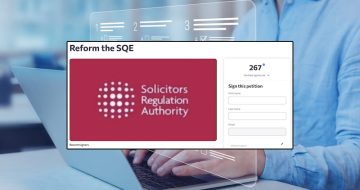Regulator says approach is fair, efficient and not just recall

The Solicitors Regulation Authority (SRA) has published a new explainer justifying its use of single best answer multiple-choice questions (MCQs) in the Solicitors Qualifying Exam (SQE1).
The regulator says the MCQ format “does not test simple recall” but instead assesses aspiring lawyers’ ability to apply legal knowledge in a practical way.
According to the SRA, the approach is widely used in other high-pressure professions, such as medicine and accountancy. It argues that the method allows broad coverage of topics, is cost-effective, and ensures consistency because answers are marked by computer rather than examiners. It also points out that SQE2, taken later in the qualification process, does assess more traditional skills like legal drafting, writing and advocacy.
The explainer adds that the format is considered “fair”, noting that post-exam analysis shows no evidence of particular questions disadvantaging certain groups of candidates. It also points to data indicating that candidates who perform well in SQE1 usually go on to achieve strong results in SQE2
The SRA’s justification of the MCQ format comes amid criticism from students and academics, some of whom argue it reduces the exam to more of a memory test than an assessment of genuine legal reasoning. Others question whether it reflects the reality of legal practice, where problems rarely come with five pre-set options.
The most recent SQE1 pass rate, released in April, was 56% — up from the record low of 44% in the previous sitting.
 (
( (
(

